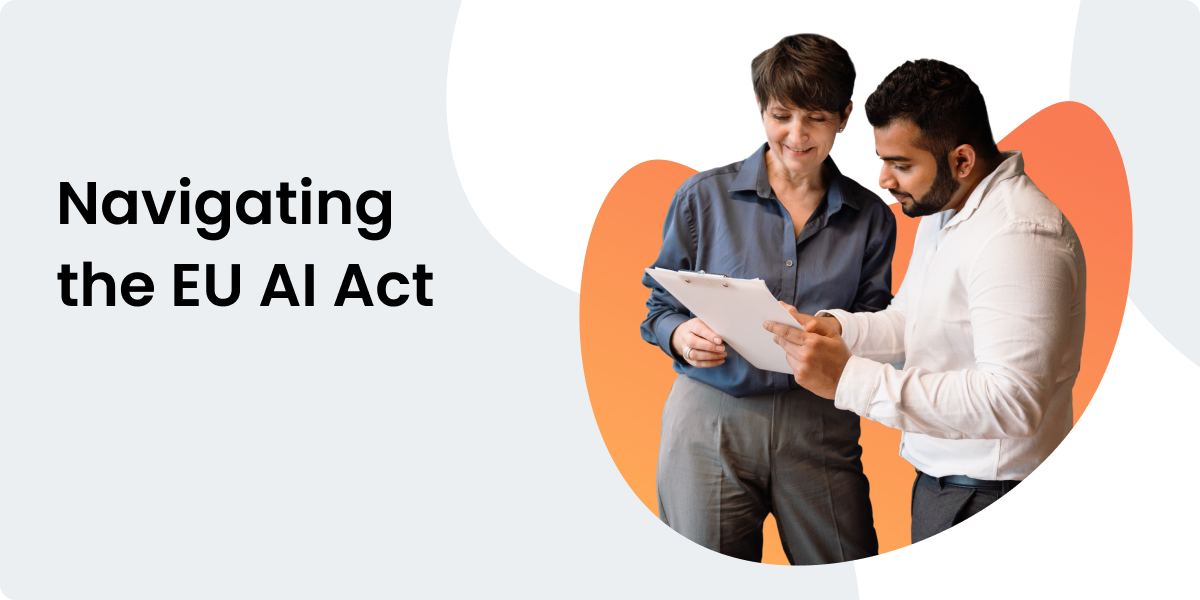What The EU AI Act Means for Your Organization’s Compliance and Innovation
With AI technology advancing rapidly, it’s no surprise that new regulations are emerging to keep things in check—especially when it comes to protecting personal data. Passed by the EU Parliament in March 2024, the EU AI Act is a landmark piece of legislation designed to safeguard rights, support democratic values, and promote sustainability. At the same time, it’s built to encourage responsible innovation. The Act sorts AI applications into four levels of risk, guiding organizations toward safer, more ethical AI use.
Understanding the EU AI Act’s Four Levels of Risk
- Unacceptable Risk
AI applications that seriously threaten safety, rights, or personal freedoms fall under “unacceptable risk” and are completely banned. This includes AI systems used for social scoring (evaluating people based on behavior or characteristics) or manipulation. - High Risk
Certain uses, like in law enforcement or healthcare, are classified as “high risk” because of their potential impact on safety and rights. These applications face strict requirements to reduce risks related to accuracy and reliability, helping ensure that AI supports rather than harms people. - Transparency Risk
AI in this category requires transparency with users. Developers and deployers must clearly disclose that users are interacting with an AI system, closing the door on undisclosed AI chatbots or deepfakes. - Minimal Risk
AI tools with limited impact, such as spam filters or video games, fall under “minimal risk” and remain unregulated.
By defining these categories, the EU AI Act reshapes how we build and use AI, especially for global businesses serving customers in the EU.
What Does This Mean for Your Organization?
Even if your organization isn’t based in the EU, this Act could still apply if you have customers or employees there. The Act provides clear guidelines to help you understand whether AI is involved in analyzing actions—yours or your customers’. This clarity can build trust and transparency, both internally and with customers.
To make sure you’re compliant, training is essential. Equip your team with knowledge on this new framework, especially for employees who use AI tools in their roles or manage AI systems. A great place to start is OpenSesame’s selection of AI compliance training courses, including options from lawpilots, which focus on legal and regulatory essentials.
Heads up: “Non-compliance with the prohibition of the AI practices referred to in Article 5 shall be subject to administrative fines of up to EUR 35 000 000 or, if the offender is an undertaking, up to 7% of its total worldwide annual turnover for the preceding financial year, whichever is higher.”
You can also read the full Act on the official EU website.
Ready to get started?
Staying compliant with evolving AI regulations doesn’t have to be complicated. Explore OpenSesame’s AI training courses today to help your team stay informed, confident, and ready to meet the EU’s new standards. Browse Courses Now.
